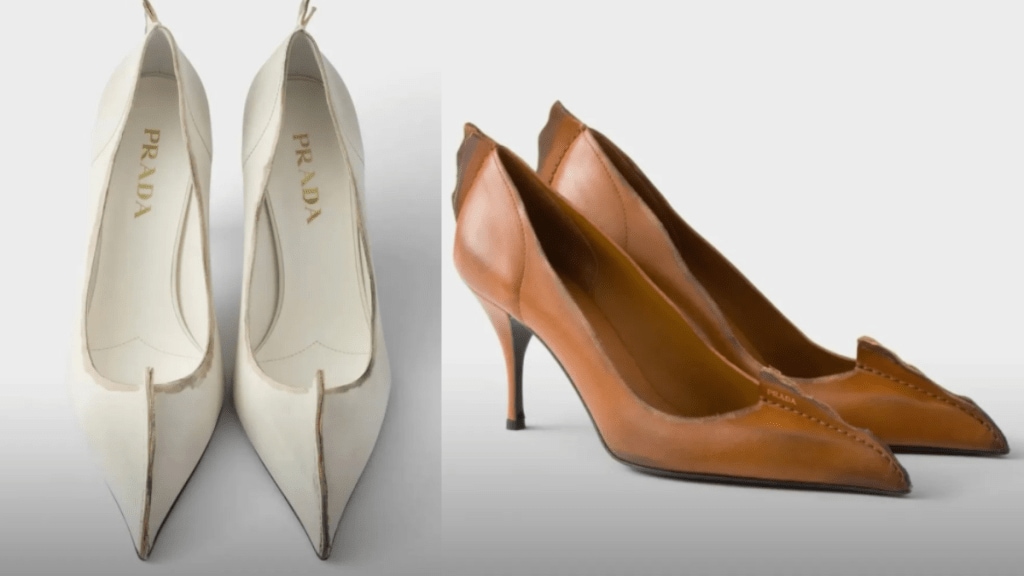Italian luxury brand Prada is once again facing backlash for cultural appropriation, this time over a new line of high-heeled pumps that bear a close resemblance to traditional Indian juttis. Marketed as ‘Antiqued Leather Pumps’ and priced at approximately Rs 1.5 lakh, the calfskin stilettos feature pointed toes, raw-cut edges and visible stitching, design elements that Indian artisans say are remarkably similar to Punjabi or Rajasthani juttis.
Resemblance sparks criticism
The resemblance has sparked criticism from netizens and dismay among shopkeepers and artisans in Amritsar, many of whom depend on jutti-making for their livelihood. While some industry experts, such as footwear designer Rashmi Tomar, have acknowledged the silhouette’s resemblance to Indian forms, especially in the toe and upper structure, others like Sukrit Khanna of Artimen note that the resemblance may be “inspired” rather than directly replicated. Nonetheless, the debate has reignited long-standing concerns about attribution, compensation, and the ethics of inspiration in luxury fashion.
Not the first time
This is not Prada’s first tryst with controversy around Indian craft traditions. Earlier this year, the fashion house came under scrutiny for displaying Kolhapuri chappal–inspired sandals at its Spring/Summer 2026 menswear showcase in Milan. Branded as ‘Toe Ring Sandals’ and priced above Rs 1 lakh, the designs drew criticism for lacking any mention of their Maharashtrian origins.
Following public pressure and legal challenges, including a Rs 500-crore case questioning potential violations of Geographical Indication (GI) protections, Prada entered discussions with the Maharashtra Chamber of Commerce (MACCIA) and local craftsmen for potential collaborations and co-branded lines. The company, however, has denied any wrongdoing, asserting that the products are “general leather sandals” and not replicas of GI-protected designs.
In both cases, critics argue that while inspiration from traditional crafts is not inherently problematic, the failure to credit or compensate artisans, especially when luxury versions are priced exponentially higher than local counterparts, raises ethical concerns. Authentic Punjabi juttis, for instance, retail between Rs 400 and Rs 2,000 in Indian markets, a fraction of the price of Prada’s luxury pumps.
